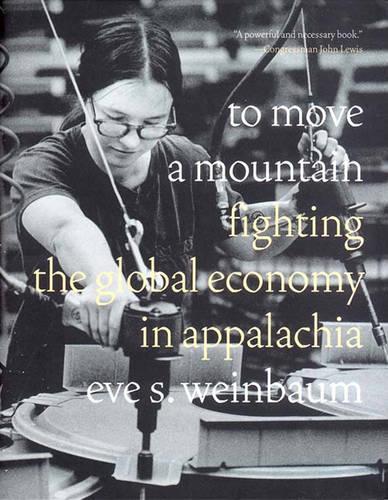
To Move a Mountain: Fighting the Global Economy in Appalachia
(Hardback)
Publishing Details
To Move a Mountain: Fighting the Global Economy in Appalachia
By (Author) Eve S. Weinbaum
The New Press
The New Press
8th April 2004
United Kingdom
Classifications
General
Non Fiction
338.710974
Physical Properties
Hardback
320
Width 160mm, Height 205mm
595g
Description
To Move a Mountain is an inspirational account of how a group of Appalachian men and women, politicized by the disaster of local plant closings, became unlikely activists in the Tennessee statehouse and the protests in Seattle.
Eve Weinbaum's firsthand look at the devastation wrought by the closings of community-sustaining factories become moving stories in the age of corporate globalization. With striking portraits of managers, workers, organizers and local officials, the book sets the Appalachian plant closings squarely in the economic and political context of economic development strategies and uncovers a government and economic leadership whose policies show little regard for the workers they leave behind. Yet the repeated defeat of the workers sparked an astonishingly fiery economic justice movement in Tennessee, as factory workers were transformed into sophisticated activists, generating coalitions, starting allied campaigns for living wages, and writing groundbreaking legislation.
With careful consideration of what made some movements flourish and others die, To Move a Mountain is at once a detailed and intricate ethnography and an inspiring story on the evolution of seemingly insignificant local organizing efforts into sustained social movements.
Reviews
Instead of getting depressed, and going home, I came out fighting. . . . I've been fighting ever since.
Author Bio
Eve S. Weinbaum is an associate professor at the Labor Center, University of Massachusetts, Amherst. A former organizer with the Union of Needletrades, Industrial and Textile Employees (UNITE!) and the Hotel Employees and Restaurant Employees International Union (HERE), she worked in nine states in the Southeast, educating and mobilizing members around a wide range of issues and union campaigns, including the campaign against sweatshop labor. She received a PhD in political science in 1997 from Yale University.
